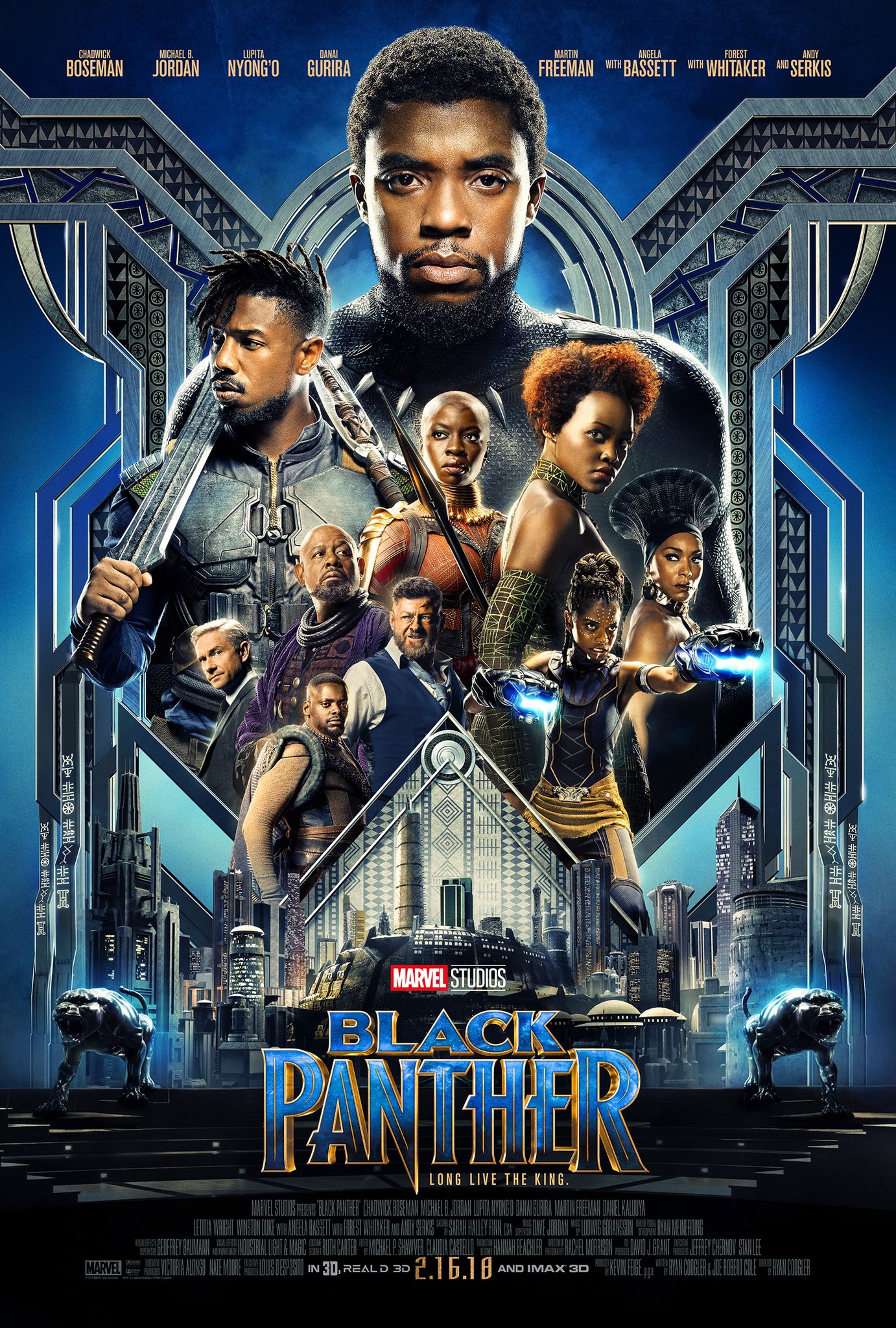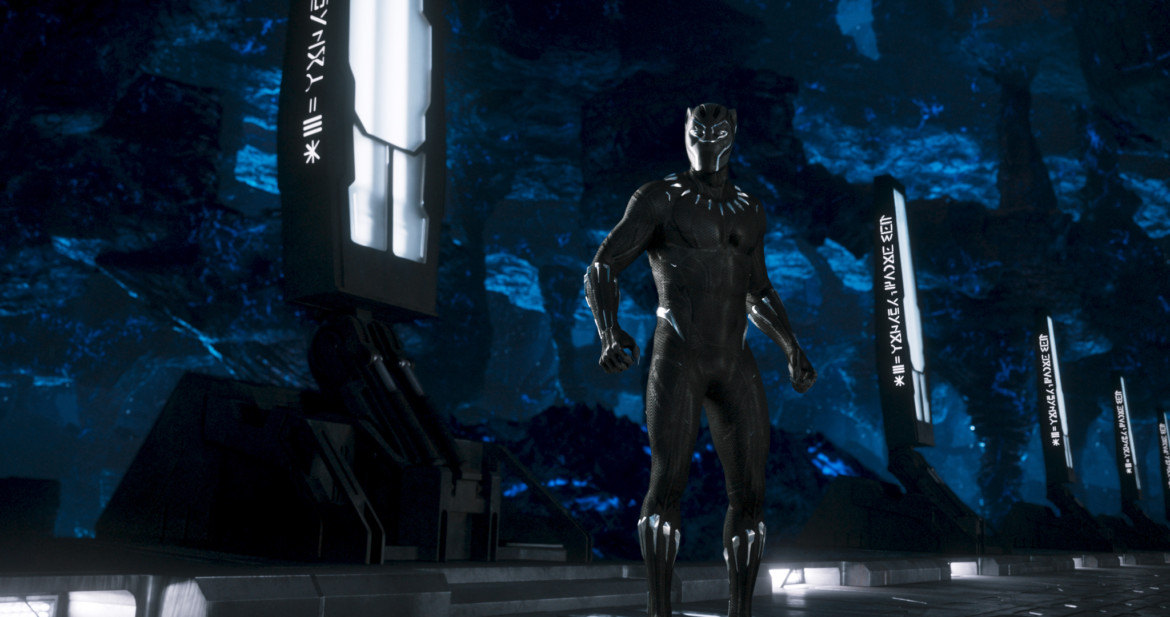By Nina Tabios
In director Ryan Coogler’s “Black Panther,” the world of Wakanda functions as a character just as much as it does setting. The fictional African nation sets the movie’s tone from the beginning: Wakanda is a place of majesty, a global wonder and secret all its own.
“Black Panther” as Coogler’s third directorial work (following 2015’s “Creed” and 2013’s “Fruitvale Station”) is arguably one the most anticipated films for 2018, expectations towering over the highest Wakandan skyscraper. And on the surface, Coogler delivers – entertaining from start to finish, dazzling to behold from landscape to costumes – and where it stands out is in the ways it speaks and reflects to the political anxieties of the film’s creators and, in turn, their intended audience.

Chadwick Boseman in Marvel Studios’ “Black Panther.” Photo courtesy of Marvel Studios.
The latest entry into the Marvel Cinematic Universe, much of the hype surrounding “Black Panther” hinged upon its star-studded cast: Chadwick Boseman (“Get On Up,” “Draft Day”) playing the titular character, Michael B. Jordan (“Creed,” “Fruitvale Station”), Lupita Nyong’o (“Star Wars: The Last Jedi,” “12 Years a Slave”), Danai Gurira (“The Walking Dead”) and Daniel Kaluuya (“Get Out,” “Sicario”) tips the iceberg of its roster, matching the vibrancy of the world their characters inhabit.
“Black Panther” is the origin story of Boseman’s T’Challa, first introduced in 2016’s “Captain America: Civil War.” T’Challa is next in line for the Wakandan monarchy after his father is killed in an United Nations attack, shown in scene flashbacks from “Civil War.” As T’Challa steps into the role, a far-off villain seeks ways to challenge T’Challa’s claim to the throne and thus, disputing not only the traditions that kept Wakandans safe, but also T’Challa’s fate as the new king and Black Panther.
As a sovereign nation, unmarred by colonization, Wakanda is untouched by the outside. As a result, their great resource of vibranium remains the center of its prosperity: Light-years ahead in technology, education and economy, Wakandans have the ultimate agency—so much so, that they choose to hide in plain sight, away from the rest of the world’s overarching problems.

Courtesy of Marvel Studios.
Wakanda’s essence pierces every aspect of “Black Panther.” It permeates the edges of the frames and shines clear in the charms of its inhabitants: T’Challa’s sense of nobility and honor; his sister Shuri (played by Letitia Wright), an intensely bright tech genius; the proud, traditionalist nature of Gurira’s Okoye. Each actor injected their own version of cool into each character, slyly slipping in modern-day references to pop culture and social cues. While technologically advanced, this universe didn’t feel out of reach.
There’s tons to unpack thematically, and much of the movie begs for longer glances at Wakanda’s universe – not to Coogler’s negligence, it’s just that enticing. Derived from real-world African histories, cultures and mythologies, Wakanda’s flourishing infrastructure ties in neatly with the plot to set up some big questions hanging over T’Challa and his duties as king: Self-preservation versus integrity; allegiance versus duty; country versus family.
The film is bookended with nods to Coogler’s hometown of Oakland and it’s a fitting homage given the timing of his “Black Panther” arrival. Wakanda is far from perfect, same with Oakland or any other city, and what Coogler presents through “Black Panther” is that birthplace, legacy and tradition paves only a fraction of who we become, but never trumps choice and virtue in determining our destiny.
“Black Panther” is now playing in theaters.
